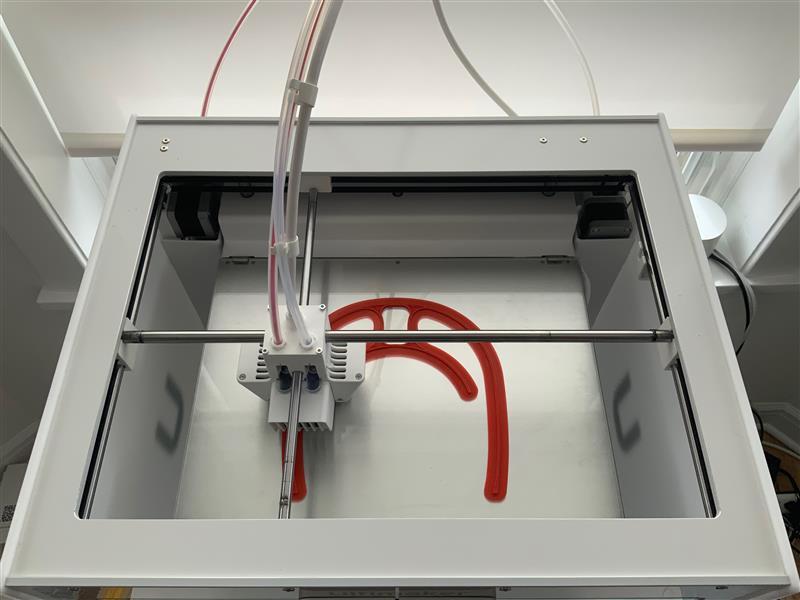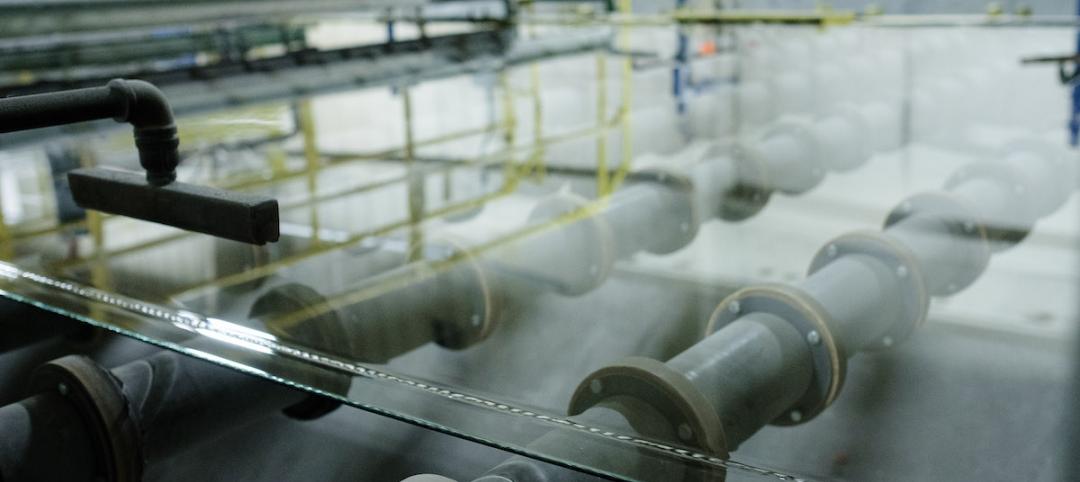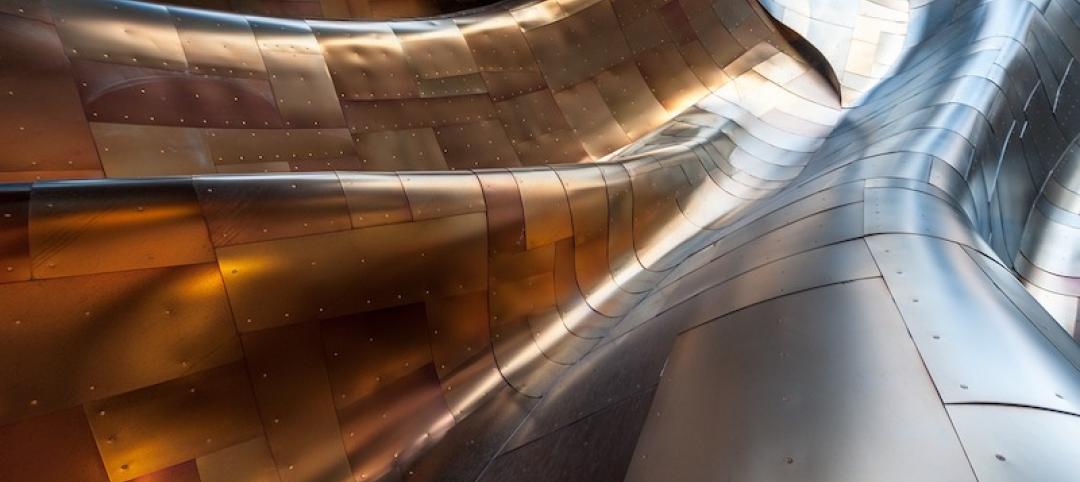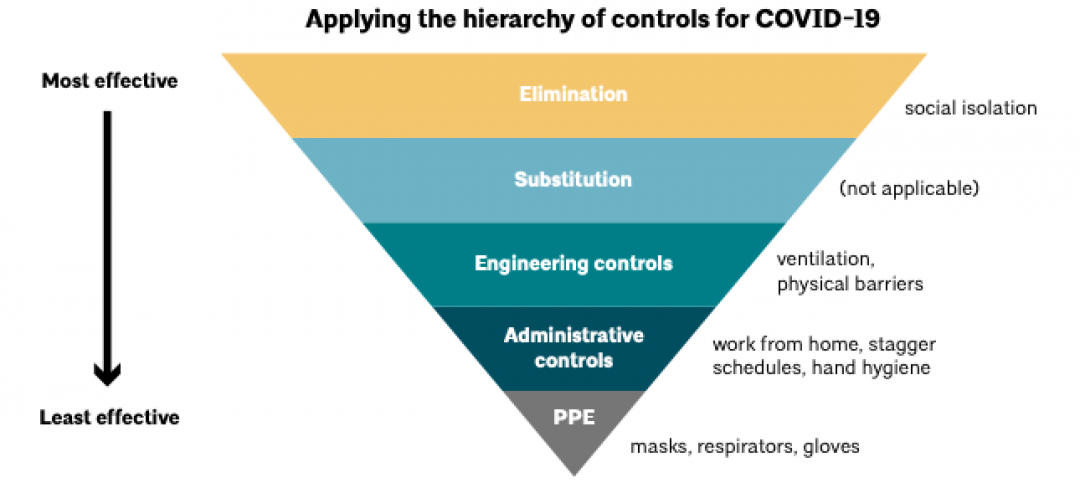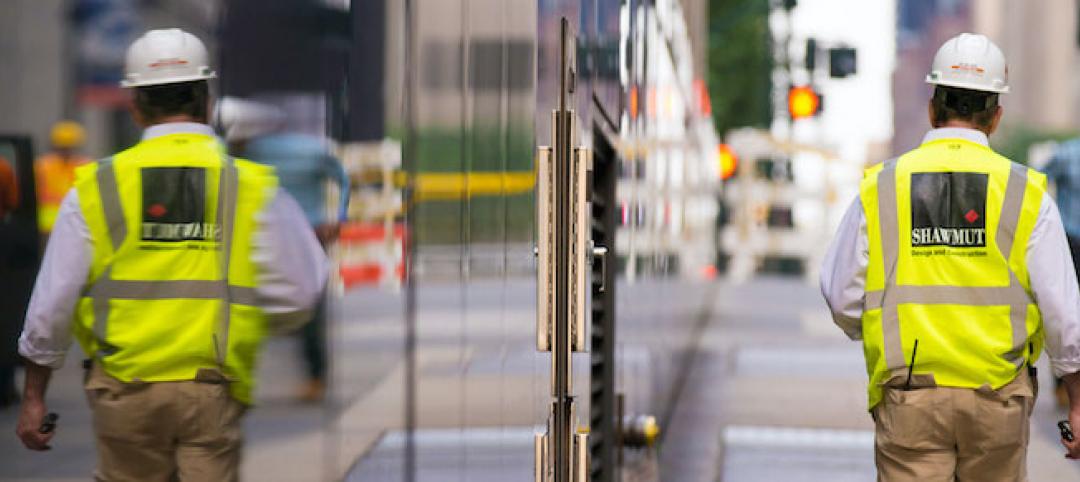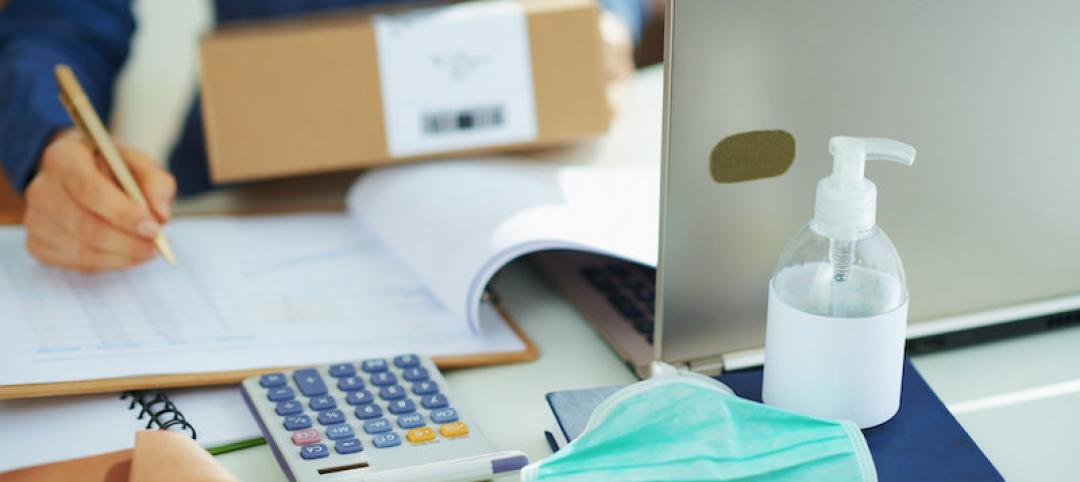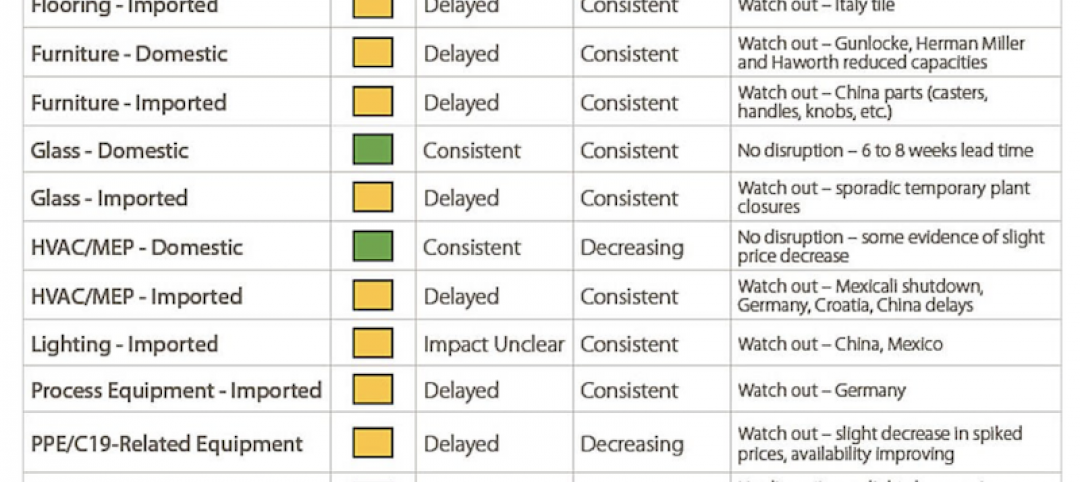3D printers have become invaluable tools for producing much-needed personal protective equipment during the COVID-19 pandemic. Tech companies such as Apple and Blue Origin, manufacturers like Ford Motor Co., and universities such as Duke and Harvard, have been using their printers to churn out face shields for first-line medical workers.
And it’s not just corporations and academia jumping in, either. Former Autodesk CEO Carl Bass and Chris Taggert, who operate a 10,000-sf metal shop in West Berkeley, Calif., recently set up a GoFundMe page to help their meet their goal of producing more than 20,000 shields using 3D printers for areas hit hardest by the coronavirus.
Last Friday, AMITA Health Resurrection Medical Center Chicago received its initial shipment of 20 reusable face shields that its medical staff helped design in collaboration with Chicago-based Krueck + Sexton Architects, which produced the shields on a 3D printer.
Thirty of Krueck + Sexton’s employees—essentially its entire studio—were involved in the initial concept design, which over the past several weeks they discussed during the office’s weekly “Friday Forum.” Ten of those employees were actively involved in sketching and refining the shield design.
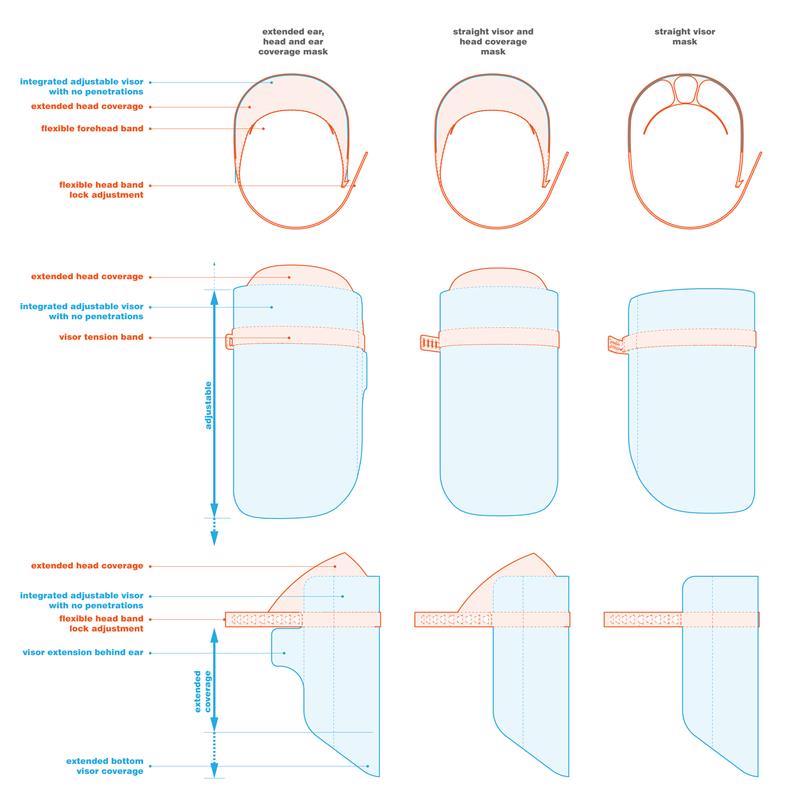
The hospital's medical personnel was involved in refining the design of the face shields, whose initial concept Krueck + Sexton's entire studio team worked on.
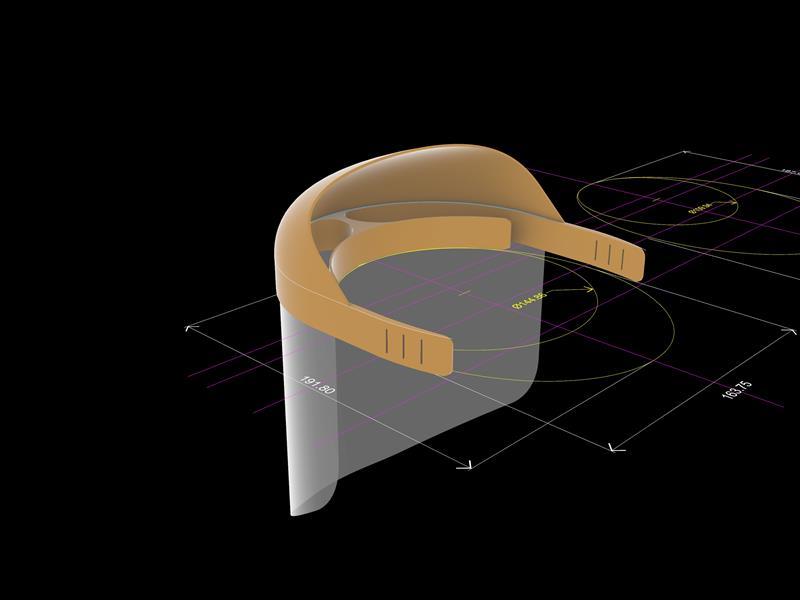
Project Architect Mariusz Klemens spearheaded this effort after his sister-in-law, Dr. Angelina Slota, a resident at the hospital, told him about Resurrection’s need for more PPEs. He set up a temporary 3D printing operation in his apartment and worked round the clock to produce and assemble the shields. The medical team got involved in testing the prototype in a hospital setting, and providing feedback that guided the design for improved functionality and flexibility.
Klemens has since has purchased a second printer to facilitate production of 80 more shields for the hospital, including its Emergency Department team that put in a request for the personal protection equipment.
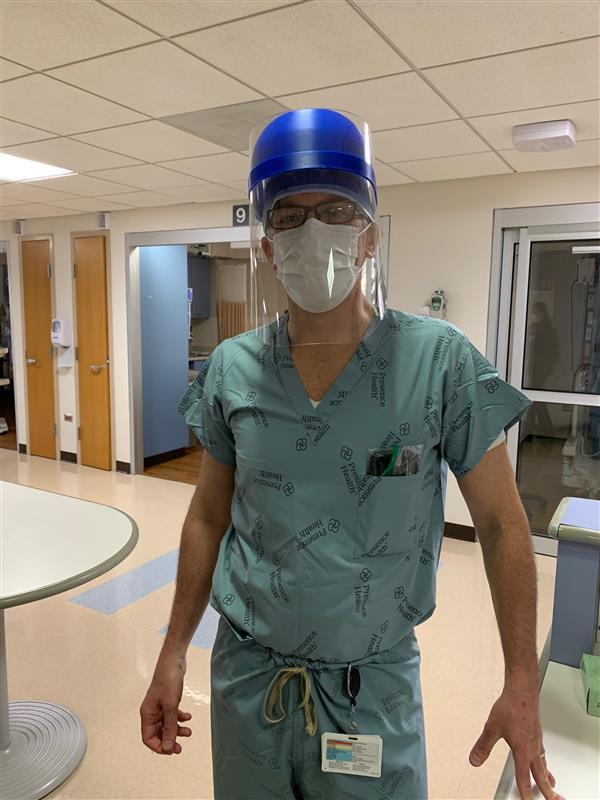
The face shield is designed for easy maintenance.
The face shield, according to Krueck + Sexton, has some unique features:
•It provides a continuous barrier, with no holes or screws
•The curved plastic shield extends to the wearer’s chest and covers his or her ears and side of head.
•The shield provides additional coverage to the forehead from the top. And the single-material helmet hooking system can be adjusted to different head sizes.
•The shield itself can be adjusted to accommodate the height of the wearer.
•The face shield has no rubber pieces, and has been designed for easy cleaning.
Related Stories
Glass and Glazing | May 8, 2020
Vitro Architectural Glass releases guide on decontaminating glass surfaces
The five-page technical document offers methods for cleaning and sanitizing glass surfaces.
Coronavirus | May 7, 2020
White paper clarifies steps, roles for use of metal composite material
Responsibilities of manufacturers, distributors, and fabricators outlined.
Coronavirus | May 7, 2020
Architects release new resource for safer re-occupancy of buildings
The American Institute of Architects (AIA) is releasing a new Re-occupancy Assessment Tool today that provides strategies for limiting exposure to COVID-19 in buildings.
Coronavirus | May 6, 2020
Reopening Main Street post-COVID-19 quarantine
Cities and communities will need to adjust public space to allow customers back in with distancing in mind.
Coronavirus | May 6, 2020
Making jobsites safer in the COVID-19 world
A leading construction manager and installer certification alliance share their insights.
Coronavirus | May 6, 2020
National Construction Association and Procore to release new data showing the impacts of the coronavirus on the constructionindustry
Data will be released on Friday, may 8 at 12 pm EDT.
Healthcare Facilities | May 5, 2020
Holt Construction, U.S. Army Corps of Engineers complete temporary hospital in two weeks
The project is located in Paramus, N.J.
Coronavirus | May 5, 2020
How will COVID-19 change the procurement of professional design services?
We can use this moment as a test-case to build greater flexibility into how we pursue, win and deliver capital projects, better preparing the industry to meet the next disruption.
Coronavirus | May 4, 2020
Design steps for reopening embattled hotels
TPG Architecture recommends post-coronavirus changes in three stages.
Coronavirus | Apr 30, 2020
Gilbane shares supply-chain status of products affected by coronavirus
Imported products seem more susceptible to delays


